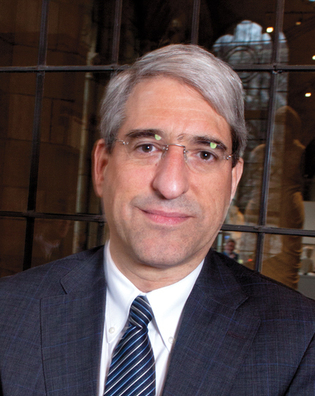 loading
loading
Q&A: Peter SaloveyUndergraduates and alcoholYale’s approach to a nationwide problem.  Mark OstowView full imageY: There’s nationwide concern these days about undergraduate drinking, and Yale is not exempt. In the 2012–13 academic year, a fifth of undergrads who responded to university surveys said they had blacked out due to alcohol at least once in the previous two weeks. Yale is taking several steps to address the problems. What’s the university’s approach? S: This statistic is an alarming one, and although national studies show that drinking behavior at Yale is similar to that at our peer institutions, we are committed—strongly committed—to reducing risky and underage drinking behavior on campus. We start with an important principle: the health and safety of our students comes first. We are taking clear steps to address, first, what psychologists and public health and student affairs professionals call high-risk drinking—essentially binge drinking, drinking a lot in a small amount of time. There are many interrelated causes of high-risk drinking behavior in college students. But one very important one is that students are enormously influenced by their perceptions of social norms. So, if you think your classmates drink twice as much as they actually do, you’re going to feel like you’re not drinking the “right” amount unless you drink to excess. It is important for students to recognize that most students who drink do so in moderation, and there are plenty of fellow students not drinking much at all. There are steps the administration can take to address risky drinking, such as clarifying alcohol-related policies, adding experienced educational and residential college staff, and communicating about this issue more consistently. We’re doing all that. But the solutions that are going to stick require students to own the problem of high-risk drinking and the campus culture that reinforces it. They can do so by developing engaging activities and venues that do not emphasize drinking. For example, students came up with the idea of creating some space in Dwight Hall that is alcohol-free on Friday nights; many students go there. Students can also help change the culture through bystander intervention programs—programs in which they learn how to keep an eye on other students in social settings and intervene when they see situations in which someone has had too much to drink. All Yale sophomores participate in these programs. Now, while our resources and policies must be consistent with our efforts to change the student culture, health and safety are the top priorities. That doesn’t mean students are not responsible for their behavior, and it doesn’t mean that we can’t have rules, and enforce them. But in emergencies, it has to be safety first. Y: So a student whose friend has passed out shouldn’t be afraid of calling 911? S: No. We want students to call for help immediately. We may require students to see the alcohol counselor at Yale Health after the incident, or to complete an education or training program. But nobody in that situation, including the student who passed out, will be charged with a violation of Yale alcohol policy. This is codified in a new Medical Emergency Policy. Y: How many of these types of calls come in? S: Too many—but, of course, even one is too many. Especially in the early weeks of the school year, when students who have never lived away from home are doing so for the first time, there are such calls. Just this year, we enhanced our education for freshmen about alcohol use and our expectations for their behavior by introducing a Yale-specific online program that incoming students must complete before arriving on campus. We also must explore prevention. When you ask students why they drink, they will say that the culture tells them, “work hard, play hard.” It can be very stressful—to be committed to your studies and to your extracurriculars, to be worrying about your future, and so forth. So, when students relax, they sometimes think they must drink in order to blow off steam. But there are alternatives to these behaviors. While still encouraging our students to “seize the day,” we can motivate them to seize it in a healthier way. Y: Yale has set up committees on these issues. S: We asked two groups to examine the challenges and begin thinking about how to address them. One of the groups included Yale alumni, some of whom are parents of Yale students, and national experts in the field of college-age drinking. Their reports were followed by two new committees: a student advisory committee and a working group of students, faculty, and administrators tasked with implementing the recommendations of the alumni committee. Both are overseen by Kimberly Goff-Crews [’83, ’86JD], Yale’s vice president for student life. Y: In at least one residential college, the suite where the student social activities committee lived, the “party suite,” used to have a kegerator—a refrigerator for beer kegs. I take it that kind of thing is over. S: Yes. We must work directly with the social activities committees in the residential colleges, the leadership of the Greek community, athletic teams, singing groups, and other student organizations. These groups have bought into the idea that health and safety are paramount, and that risky and under-age drinking are challenges that must be addressed seriously. They have different ideas about how to accomplish these goals. But there is a common starting point, and we can work together to change the campus culture.
|
|
1 comment
-

Charles G. McCarthy, 3:14pm September 21 2014 |  Flag as inappropriate
Flag as inappropriate
The comment period has expired.Great start!!
Hope it keeps working!